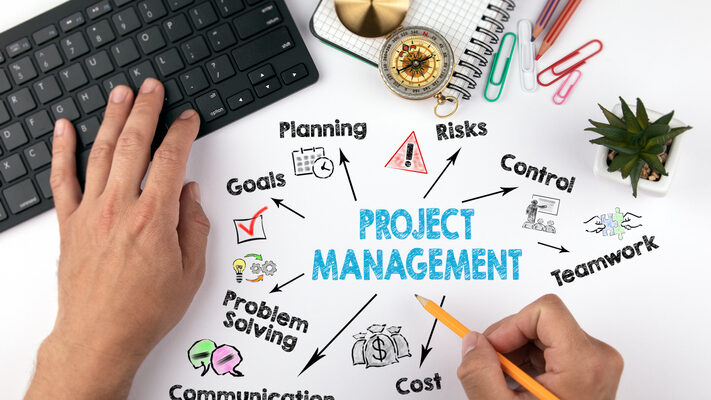Why a Project Management Professional (PMP) and not just another administrator with additional time?
PMPs are formally trained individuals required to have a specific amount of education and experience in the project management space, and that’s before they are required to attend additional training and pass a rigorous 200 question test. Additionally, to maintain their certifications, they are required to complete additional training and work within the PM field and submit these hours and courses through the PMI Website.
In addition to PMPs individual experience, they are also taught in the following:
Benefit/ Business case identification and clarification: Perhaps you have an idea, and think it would vastly improve a current existing situation, but is it worth the cost and process of implementing a project? A PMP can help give you a breakdown of why you should or shouldn’t pursue a project, and if they are the right person for the job.
Generation and implementation of a plan: Depending on where you are from, there is an old reference to success called “the 5 Ps,” or “the 6 Ps.” This stands for Proper Prior Planning Prevents Poor Performance. In other words, without a plan, many projects are doomed before they even start. PMPs are skilled creators of Schedules, Work Breakdown Structures, Resource allocation, and Closeout processes.
Project Controls: The three main constraints of a project are cost, Scope, and Time. Not having a good plan to reach your desired outcome, many times project experience plateaus, stalls, or hard stops because the cost becomes too high, the timeline for when the project result was needed has passed, or the scope continually changed until the desired outcome looks nothing like it did at the time of the project inception. PMPs are skilled in all the tools necessary to keep projects moving on time, on budget, and within the agreed-upon scope.
A subtext to this, but just as important is maintaining the desired quality of the project solution, throughout the entirety of the project. Additionally, identification and mitigation of risks associated with the project.
Accountability: PMPs are committed to the values of honesty, responsibility, respect, and fairness. Because of these values, there is a paramount desire to take 100% accountability for all facets of a project. Even when there is bad news to be shared, or an unforeseen risk has manifested itself, PMPs are the first to own it find solutions.
Contact us to see how a PMP can improve your project.


